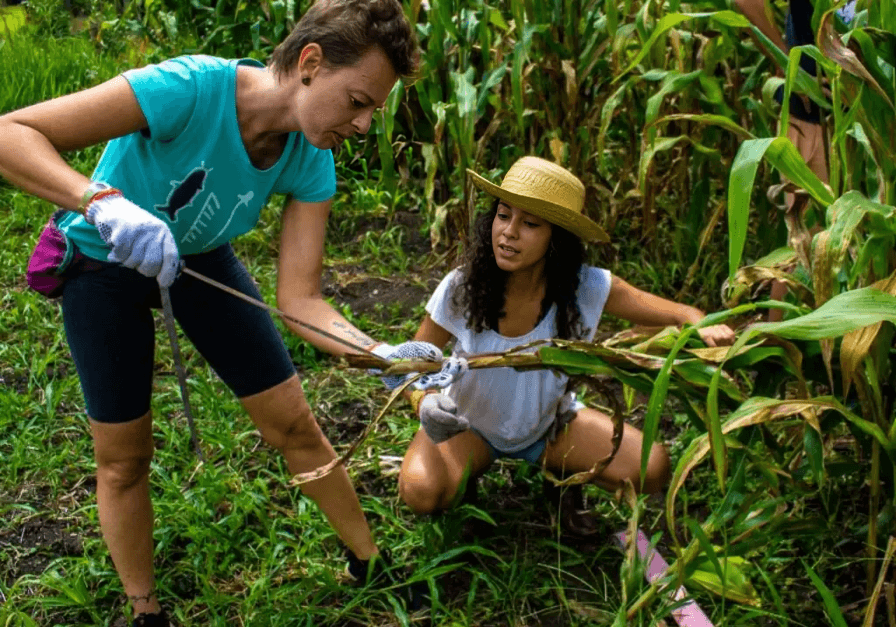
“
How Volunteering & Helping Others Boost Happiness is a powerful truth supported by science and experience. When people give their time and kindness to help others, it uplifts both the giver and the receiver. Acts of service create joy, reduce stress, and build meaningful connections.1
1
”
Philosopher Aristotle believed that happiness was found through virtuous actions and contributing to society. Volunteering aligns with this by providing a sense of purpose, which leads to lasting happiness by helping others. 1
When you volunteer or help others, your brain releases dopamine and oxytocin, often referred to as the “helper's high.” These feel-good chemicals naturally improve your mood, reduce stress, and increase happiness. 2
Altruistic behavior has been shown to reduce anxiety and stress levels. Helping others takes the focus off your own worries, fostering a calm and peaceful state that contributes to improved mental well-being. 3

Engaging in volunteer work gives individuals a sense of purpose and fulfillment. When you know that your actions positively affect others, it boosts your sense of life satisfaction, contributing to a happier life.
Studies show that volunteering has a positive impact on mental health, reducing symptoms of depression. When you shift your focus to the well-being of others, it can diminish negative emotions. 4
Volunteering can increase self-esteem and confidence by providing opportunities to make a tangible difference in someone’s life. This sense of accomplishment boosts self-worth and overall happiness. 5
Through volunteer work, you can learn new skills and gain valuable experiences. This personal growth and the sense of achievement that comes with learning something new can improve your confidence and happiness. 6
Research indicates that helping others can lead to better physical health, such as lower blood pressure and reduced stress. The positive effects on both mental and physical health contribute to overall well-being. 7
Volunteering can increase your life expectancy. Altruistic behavior has been associated with longevity, meaning that those who regularly help others may enjoy a longer and more rewarding life. 8
When facing personal challenges, helping others can be a powerful coping mechanism. By focusing on the needs of others, you create a sense of control and purpose, which can help you navigate difficult times. 9

Regularly helping others can increase feelings of gratitude for your own life. It helps you appreciate what you have, reducing feelings of envy and promoting a more positive outlook on life.
Volunteering often involves teamwork and cooperation, helping you develop stronger communication skills. These experiences, shared with others, foster a sense of camaraderie, enhancing your social connections. 10
Being involved in volunteer work adds structure and routine to your life, which can help reduce feelings of aimlessness and anxiety. Having something meaningful to do creates stability, contributing to mental well-being. 11
Altruistic acts often provide a temporary mental break from personal problems. By focusing on helping others, you allow yourself to take a step back from your own stresses, which can refresh your mind. 12
Contributing to a cause or community provides a deep sense of civic responsibility and pride. Volunteering helps you feel connected to something bigger than yourself, enhancing both your sense of purpose. 13
Helping others aligns your actions with your core values, reinforcing a sense of integrity and fulfillment. This alignment brings a deep sense of inner peace, which plays a crucial role in sustaining happiness. 14

Engaging in volunteer work requires creative problem-solving and adaptability. These experiences challenge your thinking and allow you to grow intellectually, which boosts your personal development and overall sense of joy.
The benefits of volunteering extend to emotional well-being, where giving your time helps reduce stress and relaxes the body. Acts of kindness lower cortisol, the stress hormone, creating a calming and happy effect. 15
Volunteering often provides a sense of leaving a lasting legacy. Knowing that your efforts have positively impacted future generations gives you a profound sense of satisfaction and happiness that lasts beyond the moment. 16
As doctor and philosopher Albert Schweitzer wisely noted, "The only ones among you who will be really happy are those who will have sought and found how to serve." This speaks to the enduring joy that comes from giving. 17


